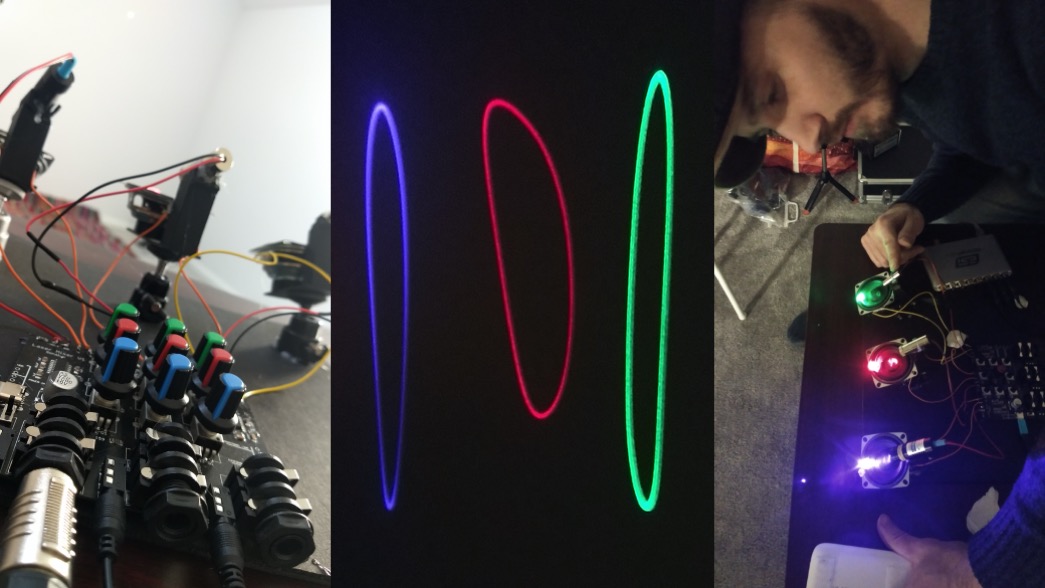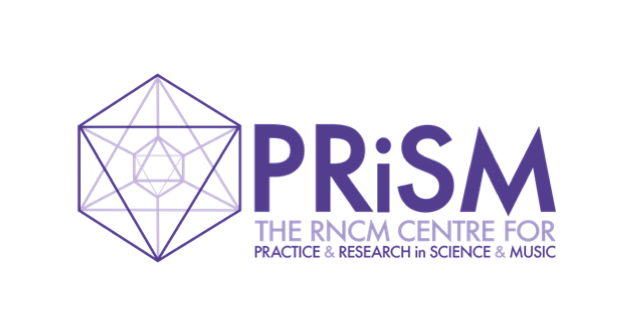Organoids
PRiSM 8³ | Organoids and Real-time Lissajous figure projection
Composer: Ian Costabile, The University of Liverpool
Scientist: Dr Raphael Levy, Senior Lecturer Biochemistry, The University of Liverpool
This piece was inspired by the work of Dr Raphael Levy and microscopy techniques which employ laser beams for scanning biological cells. Lasers have multiple applications in several fields and in music they can be used for amplifying acoustic vibrations, translating sound stimulus to the visual domain. For this, a mirror can be placed on a tuning fork, which vibrates and reflects the laser beam. The resulting effect is known as Lissajous Figure.
For this composition, a device comprised of three lasers and mirrors placed on small loudspeakers was developed. The device responds to the microphone input from three instruments: bass flute, violoncello and baritone saxophone. This instrumentation was chosen due to their similar range aspect, allowing instruments to harmonise in low frequencies corresponding to the device’s tuning resonance.
Finally, the title, Organoid, suggests a metaphor for the organic essence of each instrument, as if they behaved as organoids in the process of microscopy imaging. Organoids are simplified versions of organs produced in vitro (outside an organism).

Ian Costabile at work on Organoids



